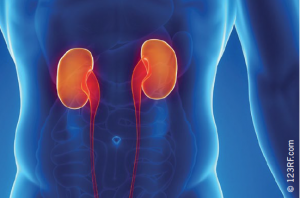The European Society of Cardiology has issued a consensus statement, which says that catheter-based renal denervation can be considered a therapeutic option in patients with drug-resistant hypertension who cannot get to goal with a combination of lifestyle and pharmacologic therapy.
 The statement, published online in the European Heart Journal (25th April 2013, doi: 10.1093/eurheartj/eht154), is written by a committee led by Dr Felix Mahfoud (Saarland University, Saar, Germany). They state that the data support the concept that radiofrequency ablation of the renal nerves reduces blood pressure and improves blood-pressure control in these difficult-to-treat patients, with results now extending to 36 months.
The statement, published online in the European Heart Journal (25th April 2013, doi: 10.1093/eurheartj/eht154), is written by a committee led by Dr Felix Mahfoud (Saarland University, Saar, Germany). They state that the data support the concept that radiofrequency ablation of the renal nerves reduces blood pressure and improves blood-pressure control in these difficult-to-treat patients, with results now extending to 36 months.
The statement also reviews the appropriate screening measures necessary to select patients eligible for renal denervation. These are:
- office-based blood pressure >160 mmHg (>150 mmHg in patients with type 2 diabetes)
- use of three or more antihypertensive drugs in adequate dosage and combination, including use of a diuretic
- have attempted to modify blood pressure with lifestyle changes
- secondary hypertension has been excluded
- pseudoresistance has been excluded with the use of ambulatory blood-pressure monitoring
- patients have preserved renal function (glomerular filtration rate >45 ml/min/1.732)
- absence of polar or accessory arteries, no renal artery stenosis, and no prior renal revascularisation.
The statement acknowledges that it is not yet clear how renal denervation works, but the mechanism is likely the result of a reduction in peripheral resistance, reduced renin release, and favourable changes in water and salt handling. “The fact that renal denervation also reduces whole-body sympathetic-nerve activity suggests that this therapy may also be beneficial in other clinical states characterised by sympathetic nervous system activation – this may ultimately lead to new indications,” it says.
